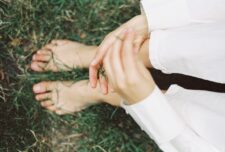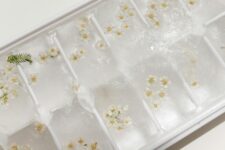Women* with a common blood type could be twice as likely to suffer from fertility problems, say scientists at Albert Einstein College of Medicine in New York and Yale University. Women* with blood group O are at a higher risk of running out of healthy eggs according to research presented this week at the American Society of Reproductive Medicine conference in Denver.
The study examined 560 women*, with an average age of 35 who were undergoing fertility treatment, looking at levels of follicle-stimulating hormone (FSH). An FSH over 10 iu/L suggests that a woman* will have more trouble conceiving than women* whose levels are under 10. The study found that women* who were blood type O were twice as likely to have an FSH level greater than 10 as those in any other blood group. This was true even when a woman’*s age was taken into account and the fact the women* came from two different clinics. Meanwhile, those with blood group A were “significantly less likely” to have an FSH level greater than 10 than those who were blood group O.
Group O has neither A nor B antigen so this blood can be given safely to any other group. This is why Group O donors are known as ‘universal donors’. This is not the first study relating blood type to certain medical conditions. Previously scientists have found that people with blood type A or AB are more likely to suffer heart disease and strokes, while those with type O are more at risk from arthritis and certain stomach infections such as E-coli.
Traditional Japanese medicine has a long tradition of grouping people according to blood type, drawing conclusions about personality, and making dietary and lifestyle suggestions according to type. This approach was popularized by naturopath Peter D’Adamo in his best selling book Eat Right 4 Your Type: The Individualized Diet Solution to Staying Healthy, Living Longer & Achieving Your Ideal Weight![]() . Although D’Adamo’s book was criticized by many in the scientific community and dismissed as a fad it remains a popular diet amongst many of my patients. Outlined below is a summary of its conclusions about each blood type.
. Although D’Adamo’s book was criticized by many in the scientific community and dismissed as a fad it remains a popular diet amongst many of my patients. Outlined below is a summary of its conclusions about each blood type.
- Blood group O is believed by D’Adamo to be the hunter, the earliest human blood group. The diet recommends that this blood group eat a higher protein diet. D’Adamo bases this on the belief that O blood type was the first blood type, originating 30,000 years ago.
- Blood group A is called the cultivator by D’Adamo, who believes it to be a more recently evolved blood type, dating back from the dawn of agriculture, 20,000 years ago. The diet recommends that individuals of blood group A eat a diet emphasizing vegetables and free of red meat, a more vegetarian food intake.
- Blood group B is, according to D’Adamo, the nomad, associated with a strong immune system and a flexible digestive system. The blood type diet claims that people of blood type B are the only ones who can thrive on dairy products and estimates blood type B arrived 10,000 years ago.
- Blood group AB, according to D’Adamo, the enigma, the most recently evolved type, arriving less than 1,000 years ago. In terms of dietary needs, his blood type diet treats this group as an intermediate between blood types A and B.
Based on these classifications the O blood type needs protein-rich foods for nourishment. Interestingly in my own book Making Babies: A Proven 3-Month Program for Maximum Fertility![]() , which I wrote with Reproductive Endocrinologist, we make a similar suggestion but arrived at this conclusion through a study of Traditional Chinese Medicine (TCM). In the book, we divide people into five basic fertility types. From our observations and using TCM principles, we suggested that the dry type (yin deficient) was most likely to suffer from high FSH and premature infertility and we suggest that they eat a yin nourishing diet including plenty of protein.
, which I wrote with Reproductive Endocrinologist, we make a similar suggestion but arrived at this conclusion through a study of Traditional Chinese Medicine (TCM). In the book, we divide people into five basic fertility types. From our observations and using TCM principles, we suggested that the dry type (yin deficient) was most likely to suffer from high FSH and premature infertility and we suggest that they eat a yin nourishing diet including plenty of protein.
So what is someone wishing to conceive supposed to do with this new information about blood type? I have already received emails from patients who are blood type O and are worried about what this news means. My first advice is not to panic. Type O is the most widespread blood type and common sense suggests that it would not have continued to be the largest blood group if type O people routinely had trouble conceiving. It’s important to bear in mind that this research looked at women* who were already seeking fertility treatment and not at the majority of type O women* who conceive without any problems at all. What the research may mean from a Chinese medicine perspective is that type O people are more likely to be yin deficient (dry type) and as we noted in our book yin deficient people (dry type) are more likely to suffer from high FSH. In Chinese medicine we would suggest nourishing yin by following the suggestions in Making Babies for the dry type, taking yin nourishing herbs, and eating nourishing protein-rich foods.
I am often struck by how Western scientific research comes to the same conclusions as traditional Asian medicine but from a different frame of reference. It really is the case that we are all observing the same phenomenon but through our own cultural and societal lenses.
* Language used in the studies referenced.






